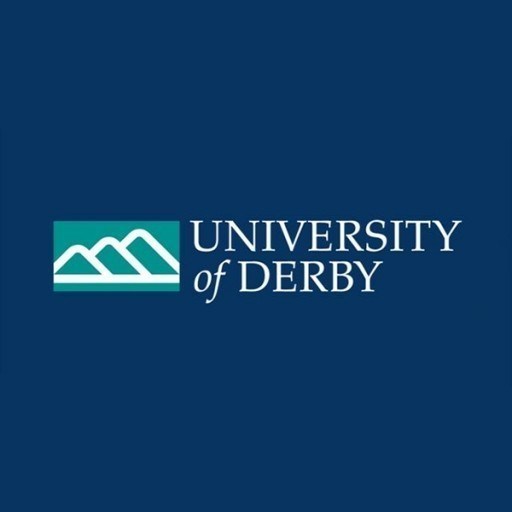Photos of university / #ucl
The Bachelor of Arts in Human Sciences and Evolution at University College London offers an interdisciplinary and comprehensive exploration of human biology, evolution, and behaviour, equipping students with a deep understanding of the biological and cultural factors that have shaped humanity. This programme integrates perspectives from anthropology, biology, psychology, and other social sciences to provide a holistic view of human origins, development, and diversity. Students will investigate key topics such as human evolutionary history, genetic variation, adaptation, and the cultural contexts that influence human societies across different eras and regions. The curriculum combines theoretical knowledge with practical skills, including data analysis, critical thinking, and research methods, preparing graduates for careers in academia, healthcare, public policy, or related fields. Emphasis is placed on understanding human adaptation, the evolutionary basis of behaviour, and the impact of environmental and social factors on human evolution and diversity. The programme also encourages students to critically evaluate scientific evidence and contemporary debates around human origins and evolution. With close links to UCL’s renowned research centres, students benefit from exposure to cutting-edge research and opportunities for fieldwork, laboratory analysis, and collaborative projects. By the end of the programme, students will have developed a nuanced appreciation of the complexities of human evolution and the biological and cultural processes that continue to influence human life today. The degree is ideal for students interested in understanding what makes us human, and how our evolutionary past informs modern society and future developments.
The Human Sciences and Evolution program at University College London offers an interdisciplinary exploration of how humans have developed biologically, culturally, and socially throughout history. This innovative degree combines principles from anthropology, evolutionary biology, psychology, and sociology to provide students with a comprehensive understanding of human nature and diversity. Throughout the course, students will examine key themes such as human origins, biological evolution, cultural development, and the social structures that shape human experiences across different societies.
The curriculum is designed to foster critical thinking and analytical skills, encouraging students to explore complex questions about human behavior, adaptation, and the ways in which our evolutionary past influences contemporary societies. In the initial stages of the program, students gain foundational knowledge in biological anthropology, genetics, and evolutionary theory, which provides the basis for more advanced studies in human diversity, cognition, and social organization. As they progress, students have the opportunity to specialise in areas such as primatology, human development, or cultural evolution.
One of the key features of this program is its emphasis on research and fieldwork. Students are encouraged to engage in empirical research, utilizing UCL’s extensive resources and research centers dedicated to human evolutionary studies. They will learn research methodologies, data analysis techniques, and how to critically evaluate scientific literature. Practical components may include participation in field trips, ethnographic studies, or laboratory work, allowing students to apply theoretical knowledge in real-world settings.
The program also emphasizes the importance of understanding current issues related to human evolution, including health, migration, and environmental change. Through seminars, workshops, and collaborative projects, students develop a nuanced perspective on how evolutionary processes continue to impact human populations today. Additionally, the program prepares students for a variety of careers, including research, education, public policy, and fields within healthcare and social sciences.
With a focus on both scientific evidence and cultural context, the Human Sciences and Evolution program at UCL aims to produce graduates who are well-equipped to analyze human diversity and understand the evolutionary past that shapes our present and future. The program’s flexible structure allows students to tailor their academic experience through optional modules and research projects, ensuring a personalized and in-depth educational journey into the fascinating world of human evolution and society.
Program requirements for the BSc Human Sciences and Evolution at University College London are designed to provide students with a comprehensive understanding of human biology, evolution, and social sciences. Applicants are typically expected to have achieved a high standard in their previous qualifications, such as A-levels, IB, or equivalent, with strong emphasis on science subjects including biology, chemistry, or physics. Prospective students should demonstrate analytical skills, critical thinking, and an interest in multidisciplinary approaches to human sciences.
The program includes core modules that cover evolutionary biology, genetics, anthropology, psychology, and sociology, requiring students to actively participate in lectures, seminars, and laboratory work. Students must also undertake a series of optional modules allowing specialization in areas such as primatology, neurobiology, or human behavior. To fulfill degree requirements, students must complete assessments including essays, project reports, examinations, and presentations, which develop their research and communication skills.
Practical laboratory and fieldwork components are integral to the curriculum, ensuring students gain hands-on experience in experimental design, data collection, and analysis. Students are expected to engage in independent study to deepen their understanding of complex topics and stay abreast of recent scientific developments. Successful completion of coursework and examinations across a minimum credit load is necessary for progression to subsequent years.
Additionally, the program encourages participation in research projects, dissertation work, and, where possible, placement opportunities in relevant institutions or research centers. English language proficiency must be demonstrated through accepted tests if the applicant's first language is not English. The program also adheres to UCL's academic regulations regarding attendance, participation, and academic integrity. Overall, the program aims to produce graduates equipped with interdisciplinary knowledge and skills to pursue careers in research, healthcare, education, or policy related to human sciences and evolution.
Financing studies at University College London for the Human Sciences and Evolution programme typically involve a combination of tuition fees, scholarships, and financial support options. The tuition fees vary depending on the student's residency status. For UK students, the annual tuition fee may be around £9,250, whereas international students can expect higher fees, approximately £20,000 or more per year. These fees cover access to lectures, libraries, laboratory work, and other academic resources. Students are encouraged to explore various funding opportunities to support their studies. UCL offers a range of scholarships and bursaries, including the UCL People's Fund, which provides financial assistance based on need, and the UCL Global Scholarships for international students demonstrating academic excellence. Additionally, students may be eligible for government-backed loans, such as the UK Student Loans for domestic students, which can cover tuition fees and living costs. External funding sources, including national and international organizations, charities, and grant programs, are also available for eligible students. Many students combine part-time work with their studies to help meet living expenses, and UCL's career services provide guidance on internships and part-time opportunities in related fields. It is recommended that prospective students thoroughly research all available funding options early, as application deadlines and eligibility criteria can vary. Overall, financing a Human Sciences and Evolution degree at UCL is feasible through a combination of university-led scholarships, government loans, external funding, and part-time employment, enabling students from diverse backgrounds to pursue their academic and career goals.
The Human Sciences and Evolution program at University College London offers a comprehensive exploration of the complex interactions between biological, social, and cultural factors that have shaped human development and evolution. This interdisciplinary degree combines insights from anthropology, biology, psychology, and history to provide students with a broad understanding of what it means to be human. The curriculum is designed to foster critical thinking and analytical skills, enabling students to assess different perspectives and methodologies within the study of human life and evolution.
Throughout the program, students engage with topics such as human origins, evolutionary processes, cultural diversity, language development, and the biological basis of human behavior. They will explore how evolutionary theory explains various aspects of human existence and how social and cultural factors influence biological evolution. The program emphasizes research skills and encourages students to undertake original research projects, often involving fieldwork, laboratory analysis, or data interpretation.
The program is suitable for individuals interested in careers in research, archaeology, anthropology, education, or public policy related to human evolution and society. Students benefit from UCL’s world-class facilities, expert faculty members, and a collaborative learning environment. The degree typically includes optional modules that allow students to specialize in areas such as primatology, paleoanthropology, or the psychology of human behavior.
Graduates of this program are well-equipped for further study at postgraduate levels or for employment in sectors that value interdisciplinary research and analytical capabilities. They gain a detailed understanding of the evolutionary processes that have influenced human development and the social dynamics that continue to shape human societies today. Overall, the Human Sciences and Evolution program aims to develop informed, critical, and innovative thinkers who can contribute to ongoing debates and research in understanding human origins, diversity, and future trajectories.








